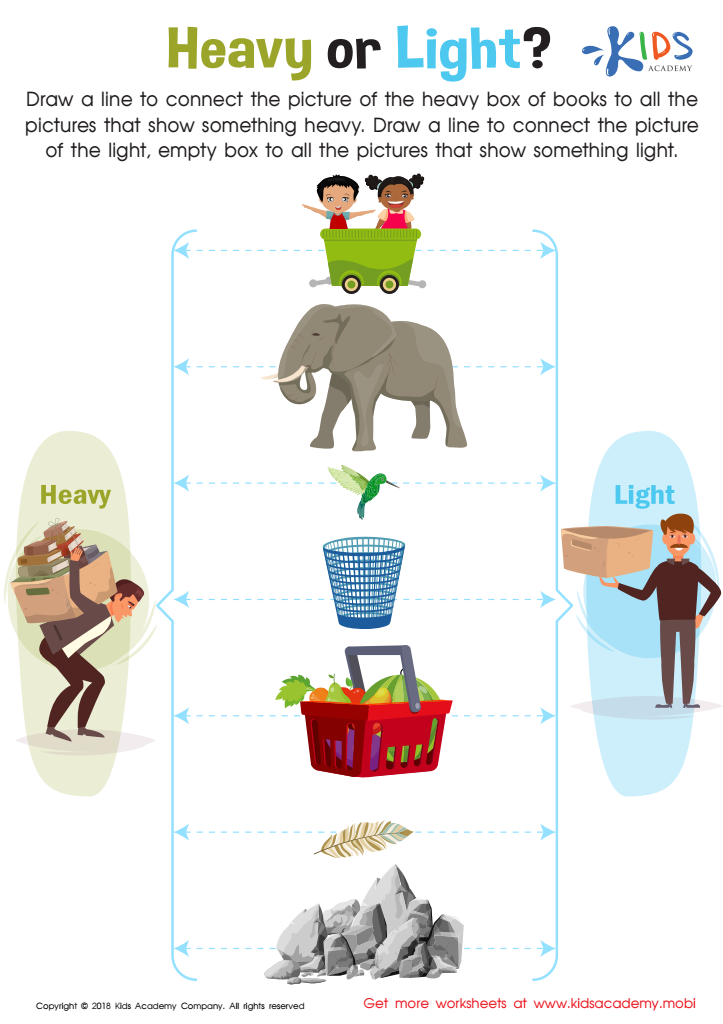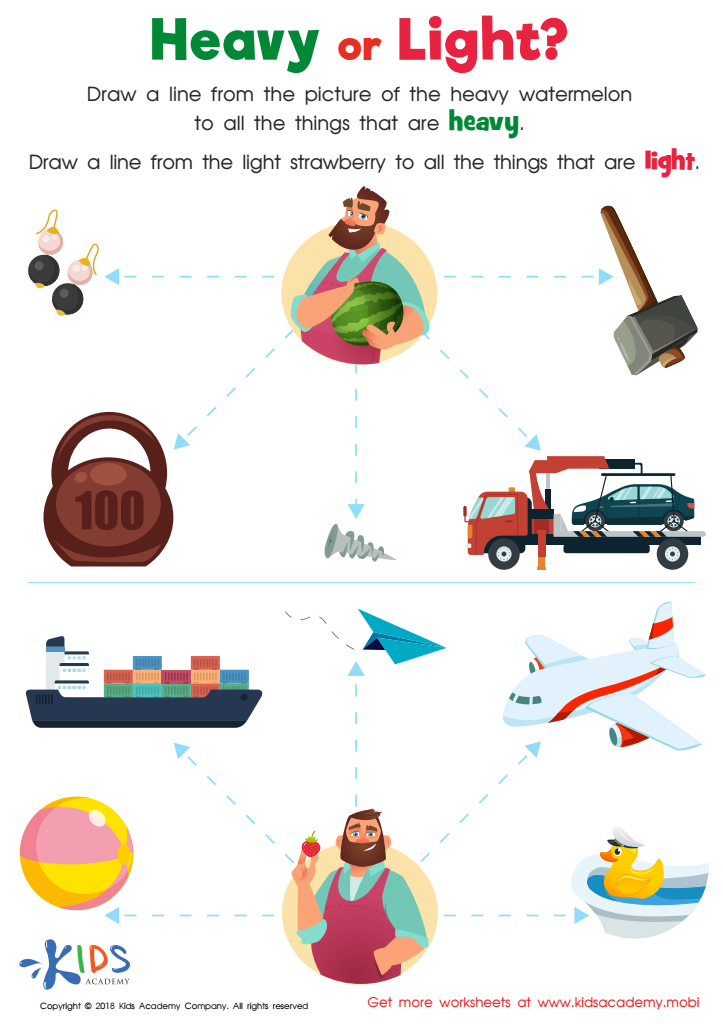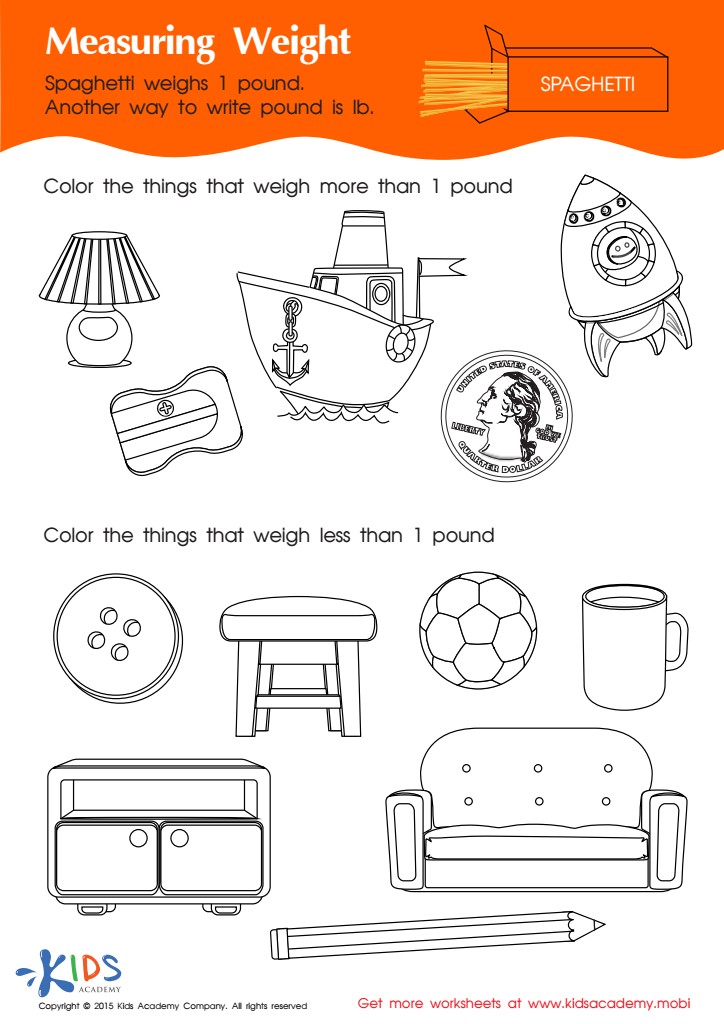Comparing object weights Measurement Worksheets for Ages 3-4
3 filtered results
-
From - To
Explore our engaging Comparing Object Weights Measurement Worksheets designed specifically for children aged 3-4. These worksheets introduce young learners to the concept of weight through fun and interactive activities that promote hands-on learning. Children will develop their critical thinking as they compare the weights of various objects, enhancing their understanding of measurement in everyday contexts. Our carefully crafted exercises encourage exploration and creativity while building foundational math skills. Perfect for classrooms or homeschooling, these worksheets provide an enjoyable way for little ones to grasp the basics of measurement in a playful, supportive environment. Download now and start learning today!


Heavy or Light? Worksheet


Heavy or Light? Worksheet
Parents and teachers should care about comparing object weights for children aged 3-4 because this activity lays the groundwork for critical thinking and foundational math skills. At this age, children are naturally curious and eager to explore their environment. Introducing weight comparison encourages them to use their senses, promoting cognitive development as they predict which objects might weigh more or less and then test their hypotheses.
Additionally, engaging in weight comparisons helps develop essential vocabulary related to measurement, such as "heavy," "light," "more," and "less." This enriches their language skills and enhances communication. It fosters problem-solving abilities as children learn to make decisions based on their observations.
Moreover, this type of hands-on learning is vital for developing fine motor skills through physical manipulation of objects. It also encourages social interaction when done in groups, promoting teamwork and collaborative learning.
By integrating weight comparison into play, caregivers can create an engaging learning environment where math concepts become concrete and enjoyable. Ultimately, these early experiences in measurement establish a strong foundation for further learning in math and science as children grow, making it an essential focus for parents and educators alike.

 Assign to My Students
Assign to My Students




















